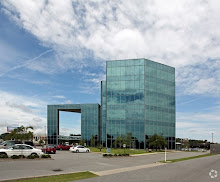Interesting Article from the Anniston Star.Corporate money and courts
By Robert Leslie PalmerSpecial to The Star
09-28-2008
In electing the next Alabama Supreme Court justice, Alabamians should bear in mind the Dutch proverb that "promises make debt, and debt makes promises," for it is now virtually impossible to run for judicial office in this state without acquiring substantial political "debt."
Alabama ranks at the very top in the cost of judicial campaigns, which commonly exceed a million dollars. If we think that all of that money has no effect on the quality of justice, then we are only deluding ourselves.
But how did this come about? Last December, a Harper's Magazine article, "
The Best Justice Money Can Buy," observed that it was
Karl Rove who "put the Supreme Court elections in Alabama 'on the map' in national political terms." The article then detailed how in 1992, Rove masterminded a strategy by which the Republican party seized control of the Alabama Supreme Court.
That strategy involved substantial infusions of cash into judicial campaigns by corporate interests. According to the non-profit organization, Justice at Stake, Alabama Supreme Court candidates raised $54 million between 1993 and 2006, the highest total in the nation. As a result, 16 years later all but one of the nine Alabama Supreme Court justices is a Republican.
Despite the near complete domination of Alabama Supreme Court elections by corporate interests, the cash spigot is still running. More important, the flow of corporate money has had a demonstrable effect on the quality of justice. In the fall 2008 Alabama Association for Justice Journal, an article, "Is There Any Hope?", has removed the rhetoric from the struggle between corporate interests and trial lawyers by painstakingly detailing objective facts rather than subjective opinion.
For example, the article demonstrates that in the past five years, the court has either reversed or reversed in part nearly four times as many jury verdicts as it has affirmed, and that there is an astonishing correlation between the percentage of campaign contributions received from corporate interests and votes to reverse a jury verdict.
Thus, by methodically detailing fundraising and election results, individual justice's votes on plaintiffs' damage verdicts, and the degree to which campaign contributions correlate with judicial decision-making, the article demonstrates objectively and authoritatively that all that corporate money has "made it harder for civil plaintiffs in Alabama to get and keep jury verdicts" compensating them for their injuries. In short, the article lifts the Court's skirt to reveal the red boots of a brazen streetwalker.
A wise person once admonished us that the "accomplice to the crime of corruption is frequently our own indifference." If we remain indifferent to the wholesale purchase of our highest court by corporate interests, then we will all be accomplices to every unjust decision that the court renders.
It is in this context that we must consider the campaign contributions in this year's only Supreme Court race. To date, Greg Shaw has raised $591,269 from 188 contributors, for an average of $3,145 per contribution. In sharp contrast,
Deborah Bell Paseur has raised $521,009 from 1,417 contributors, for an average of $367 per contribution. Thus, even though Paseur raised just 88 percent of the total contributions that Shaw raised, the number of her contributors outnumbers Shaw's 7.5 to 1.
Shaw was able to exceed Paseur's total campaign contributions only because his campaign contributions on average are nearly 9 times as large Paseur's. In short, Shaw has raised more cash from decidedly fewer sources.
More disturbing, however, is the degree to which Shaw's contributions come from political action committees. In contrast to Paseur's campaign contributions, less than 11 percent of which come from PACs, a whopping 95 percent of Shaw's campaign contributions come from PACs. And if that is not enough to make you ill, a full 62 percent of Shaw's contributions come from PACs run by one person, Thomas Dart, a lobbyist for the Automobile Dealers Association of Alabama. Every time you watch a commercial or read an ad for Shaw, remember that the pitch is being made by car dealers.
Unlike Shaw, Paseur has collected campaign contributions primarily from individuals rather than PACs, and half of her contributors are women. When couples are included, the number rises above 61 percent.
Alabama, you should vote for Shaw only if you truly believe that juries — composed of ordinary citizens like you — are wrong more than 80 percent of the time, and that the Alabama Supreme Court needs one more justice whose sympathies lie with corporations rather than people. You should vote for Shaw only if you are comfortable buying your next Supreme Court justice from a used car salesman.
But if instead you can see the plain facts before you, and if you are concerned that corporate money threatens the sanctity of our judicial system, then you should stand up for an independent judiciary and vote for Deborah Bell Paseur.
(See previous commentary on this subject from the
Anniston Star.)




